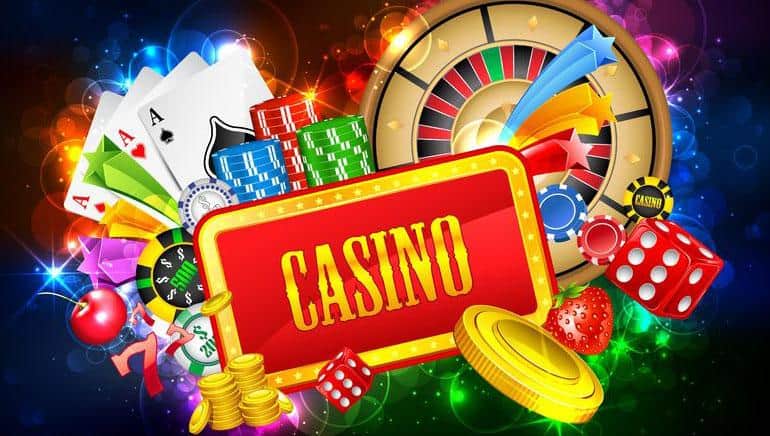Betting has been an essential part of human recreation for thousands of years, developing through cultures and periods to become the exciting casino games we know today. From the ancient Chinese and Romans, who participated in various forms of betting and chance, to the modern gaming floors of contemporary casinos, the attraction of gamble and reward has fascinated individuals across the globe. The shift from simple dice games and rudimentary betting setups to the lavish settings of modern casinos reflects considerable strides in both social norms and technological.
As cultures evolved, so too did the complexity of gambling activities, with gambling activities emerging as a separate category of leisure and excitement. These games have changed from casual gatherings centered around wooden tables to expansive, opulent establishments designed to lure players. Today, we delve into this intriguing journey, analyzing how traditional practices laid the foundation for the diverse and exciting casino activities that bring pleasure to millions worldwide.
spintax
Historical Betting Practices
Betting has profound roots in human past, with evidence of games of chance dating back to ancient societies. Archaeologists have discovered that as far back as 3000 BC, the Chinese were using basic forms of betting with dice made from wood. Similarly, ancient Mesopotamians engaged in wagering activities, often relying on the casting of lots or dice to determine results. These early forms of betting served not only as entertainment but also played vital roles in social and cultural practices.
The Egyptians also participated in gambling activities, with games that included betting on the results of various events, including athletic events and religious festivals. Items such as dice and depictions of players from ancient tombs demonstrate that gambling was a frequent pastime. It provided both leisure and a means of engaging in social connections, often linked to joyful occasions or major gatherings. This activity revealed the universal appeal of chance and rivalry throughout history.
In ancient Rome, wagering became a widespread practice among the people, as evidenced by references in literature and the establishment of rules around certain games. Romans enjoyed a variety of gambling activities, from wagering on chariot races to playing games similar to modern-day board games. The legal framework surrounding these activities began to take shape, establishing the foundations for betting regulations that would grow in the centuries to come. The prevalence of gambling during this period set the stage for the development of casino games in the future.
The Development of Casino Games
Casino games have undergone substantial transformations from their roots to the modern-day entertainment offerings. In historical civilizations, gaming was often connected to ceremonial practices, with dice games found in Mesopotamia and betting on the outcomes of events in classical Rome. These primitive forms of gambling laid the groundwork for the structured games we see today. The change from informal gambling to regulated games happened as societies began forming rules and venues for wagering, showing cultural values and practices.
The medieval period saw the rise of card games, which gained recognition among the nobility of Europe nobility. Games like the first and the game baccarat became staples in social gatherings. The invention of printing technology additionally aided the spread of playing cards, making them more accessible to the masses. As gambling houses began to proliferate, these card games evolved into variations that appealed to wider audiences, eventually leading to the founding of casinos as dedicated venues for gaming.
The 1900s marked a significant point in the development of casino games, with the rise of commercial casinos in Las Vegas and other gambling hotspots. This era introduced games like video slots and modern adaptations of table games, complete with sophisticated graphics and intricate betting structures. The introduction of online casinos in the 1990s further changed the gaming industry, allowing players to access a wide range of casino games from the comfort of their homes. Today, gambling games continue to progress, blending traditional elements with state-of-the-art technology to create immersive experiences for players worldwide.
Contemporary Gambling Regulations
In recent years, the environment of gaming laws has evolved substantially, notably as technology and online gambling have become more prevalent. Governments around the planet have enacted multiple regulations and standards to ensure that gambling activities are performed equally, with responsibility, and transparently. These regulations often include elements such as permits, advertising, gambler protection, and sensible gaming measures. Authorities aim to minimize issues such as gambling addiction and fraudulent activities while supporting a just gambling environment.
The rise of internet gambling sites has necessitated a fresh approach to regulation. Many legal areas have established dedicated online gambling structures that cater to internet-based gambling, enabling operators to provide their services legally. These structures often require operators to obtain permits, adhere to strict security protocols, and offer customer support options to help players. Kubet By vigilantly supervising internet activities, authorities can more effectively protect consumers from potential harm and make sure that gambling is carried out in a protected manner.

Moreover, modern gaming regulations are increasingly centering around sensible gaming strategies. Many casinos and online platforms now implement features such as self-exclusion, financial limits, and breaks to help players control their gambling habits. Awareness campaigns aimed at raising awareness about the risks of gaming are also common. As the industry continues to expand, the focus on sensible gaming remains a cornerstone of regulatory efforts, reflecting a dedication to encouraging a secure and enjoyable gambling experience for all gamblers.
